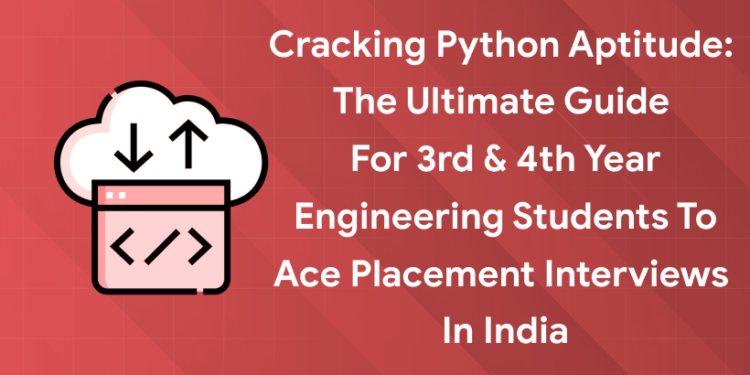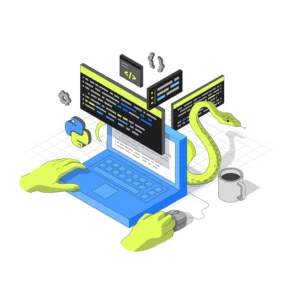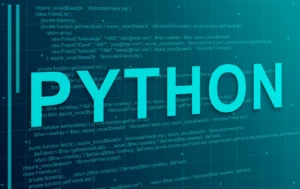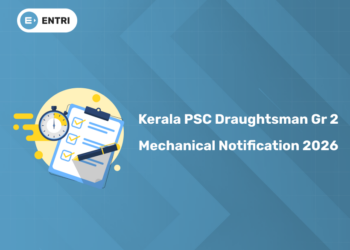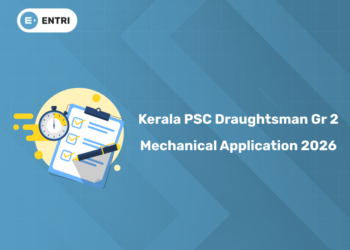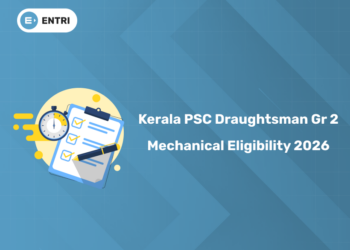Table of Contents
Key Takeaways:
- Placement interviews are a pivotal moment for third-year engineering students in India, with coding rounds—often Python-focused—serving as significant hurdles.
- Python aptitude questions are challenging but navigable through smart preparation and consistent practice.
- Entri’s Python Programming Course not only builds concept clarity but also offers real-world placement support and an internationally recognized certificate.
- Hands-on projects, interview simulators, and one-on-one mentorship make the transition from student to professional smoother.
- By leveraging high-ranking placement prep strategies and resourceful platforms, students can boost their confidence and performance during recruitment.
Introduction: Feeling the Pressure of Campus Placements?
There’s no denying it—when September arrives on campus and companies roll out their hiring season, third-year and fourth-year engineering students can feel a mix of excitement and anxiety. Everyone wants to kick-start a rewarding tech career, but the journey from college classrooms to landing a first job can seem overwhelming at times. What makes this transition especially demanding for Indian students is that placement interviews are now as much about solving difficult Python programming questions as they are about academic performance.
It’s not just rote knowledge recruiters are after—they’re hunting for creative problem-solvers and practical coders who can thrive in real-world, high-pressure scenarios. If cracking “Python aptitude questions for placement” feels intimidating, you’re definitely not alone. But with focused guidance, smart prep, and the right resources, anyone can step up to these challenges with confidence.
Navigating the Placement Interview Process
1: Which of the following data types is immutable in Python?
Taking part in the placement drive at an Indian engineering college is a memorable rite of passage. Here’s how the journey normally unfolds, demystified:
The Recruitment Timeline
-
Pre-Placement Talks: Recruiters introduce themselves and provide an overview of the company’s values, available roles, and expectations. This is an opportunity to assess potential employers and clarify any doubts right from the start.
-
Screening Tests: This can range from logical reasoning to English to—most importantly these days—technical aptitude, with a heavy focus on Python if you’re eyeing IT, software, or data science profiles.
-
Coding & Technical Assessment: Unlike older times, many companies add a focused Python aptitude or coding section, where your knowledge is tested through MCQs, puzzles, or live coding platforms.
-
Personal Interviews: Here’s your big chance to showcase your understanding of algorithms, OOP, Python libraries, and real engineering projects. Some companies even ask mini-coding sprints or whiteboard challenges—so being well-practiced matters.
-
HR Interviews: This is where your communication, adaptability, and fit in the company culture are checked, rounding off the recruitment gauntlet.
Placement Tip: Always attend as many pre-placement talks as possible. The insights you gain often help tailor your test and interview prep, especially when it comes to learning which Python topics matter most for a given firm.
🚀 Start Coding Today! Enroll Now with Easy EMI Options. 💳✨
Gain expertise in Django and open doors to lucrative opportunities in web development.
Start Learning With EMI Payment OptionsThe Real Reason Python Aptitude Rounds Are Tough
Why do so many students trip up on Python sections during campus placements? The answer is more nuanced than you might think.
Evolving Trends in Assessments
-
Not Just Syntax: Recruiters now want to see an “engineering mindset”—someone who uses Python to genuinely solve problems, not just memorize syntax. Expect integrated questions that span loops, functions, data structures, and mathematical logic in one go.
-
Scenario-Based Challenges: Companies prefer custom-designed scenarios that require applying Python creatively. Think data wrangling, automation pseudo-projects, or optimizing solutions for speed and efficiency.
-
Unpredictable Questions: Relying solely on last year’s papers isn’t enough. Placement committees tweak and rotate their questions to reward true understanding, critical thinking, and adaptability—qualities smart engineers need.
The Pressure is Real
The speed and unpredictability of the Python rounds, especially when combined with earlier aptitude tests and company-specific puzzles, can make even great students second-guess their answers. Coupled with peer pressure, this can be a lot to handle.
Student Insight: Practicing under time constraints helps make what feels like high-stakes chaos more manageable—turning nerves into an extra boost.
Entri’s Python Programming Course: An All-Round Solution
With so much riding on this one language, it makes sense to use every available advantage. This is where a structured course can tip the balance, and Entri’s offering leads the pack.
Standout Features of Entri’s Python Course
-
Recognized Worldwide: Graduates receive an internationally valid certificate, giving everyone an edge not only in local campus placements, but also in off-campus and remote job opportunities.
-
Personalized Placement Assistance: From mock interviews and resume reviews to 1:1 mentorship, Entri’s career support is designed to be responsive to each learner’s needs, not just a generic add-on.
-
Step-By-Step Curriculum: The course is scaffolded, taking you from the basics (variables, loops, data types) to advanced topics like file handling, object-oriented programming, and Django—all of which routinely appear in recruitment rounds.
-
Live Classes and Real Projects: There’s a big emphasis on hands-on projects and coding exercises, with instant feedback, so concepts actually stick. Solving real-world challenges builds confidence for placement coding rounds.
Pro Tip: Don’t just watch—build! Tackling hands-on assignments helps convert passive knowledge into interview-winning skills.
Soft Skills and Confidence Building
A major reason students stumble is not lack of technical ability but the ability to present their ideas persuasively. Entri doesn’t ignore this—modules on communication, time management, and “interactive placement prep” help smooth the path from student to sought-after candidate.
Smart Strategies for Conquering Python Aptitude Questions
The best way to conquer aptitude rounds is to blend “book knowledge” with targeted, realistic practice—even better if it’s in sync with what companies actually ask.
Core Preparation Tips
-
Master Foundations First: Focus on data types, data structures (like lists and dictionaries), file handling, functions, and object-oriented programming. These are almost always tested in some form.
-
Solve Scenario-Based MCQs: Practice with questions and problems that demand not just recall, but application—like “What will this code output?” or “Debug and correct this function.”
-
Time Your Attempts: Simulate real test conditions and learn to manage time efficiently; this also increases familiarity with coding in pressure situations.
-
Review Mistakes: Rather than brushing off errors, analyze and understand them. This reflective approach is what turns weaknesses into strengths.
Entri’s Edge
Entri gives access to a huge library of updated questions, placement mock tests, and assignments for different company profiles. Regular feedback after every module means students always know where they stand—and what to work on next.
Why Industry-Recognized Certification Matters
A certificate from Entri isn’t just a “nice-to-have”—it opens doors, both at home and abroad. Recruiters look for proof of upskilling and mastery outside of classroom grades. The Entri certificate is recognized globally and easily verifiable, making it a solid addition to your CV and LinkedIn profile.
🚀 Start Coding Today! Enroll Now with Easy EMI Options. 💳✨
Gain expertise in Django and open doors to lucrative opportunities in web development.
Start Learning With EMI Payment OptionsConclusion: Turn Aspirations Into Offers With the Right Support
For every anxious third-year engineering student gearing up for placement season, remember: the leap to a promising tech career is not just about cracking theory—it’s about mastering practical tools, like Python, and solving problems under real pressure. The competition is stiff, but the right prep resources level the playing field.
Entri’s Python Programming Course blends world-class content, hands-on assignments, placement-focused feedback, and a global certificate to help every learner unlock their best self. With unwavering guidance and community support, success is simply a matter of showing up, being consistent, and believing in the journey.
Ready to take a confident step into placement season? Enrol in Entri’s Python Programming Course and let your journey to a bright tech future begin.
|
Related articles |
|
| Python 2 to Python 3 Migration | |
🚀 Start Coding Today! Enroll Now with Easy EMI Options. 💳✨
Gain expertise in Django and open doors to lucrative opportunities in web development.
Start Learning With EMI Payment OptionsFrequently Asked Questions
Why do so many companies test Python in campus placements?
Python is industry standard for both software development and data analysis. Recruiters want proof that students can solve problems rapidly using code and not just memorize answers.
What if I don’t have a coding background?
Entri’s course is designed for all levels, so even those new to programming get foundational support and gradual exposure to complex problems.
Is the certification only useful in India?
No, Entri certification holds value internationally. It’s a great way to stand out in global job searches, internships, and even as a side credential for freelancing.
Can I prepare for product-based and service-based company rounds through Entri?
Yes, the course content, quizzes, and interview simulations are tailored to the needs of both service-based giants (like Infosys, Wipro) and product companies (like Google, Amazon).
How does Entri prepare me for the soft skills part of interviews?
The platform offers resume workshops, communication sessions, and personal mentorship, ensuring every student is interview-ready, not just technically sound.


